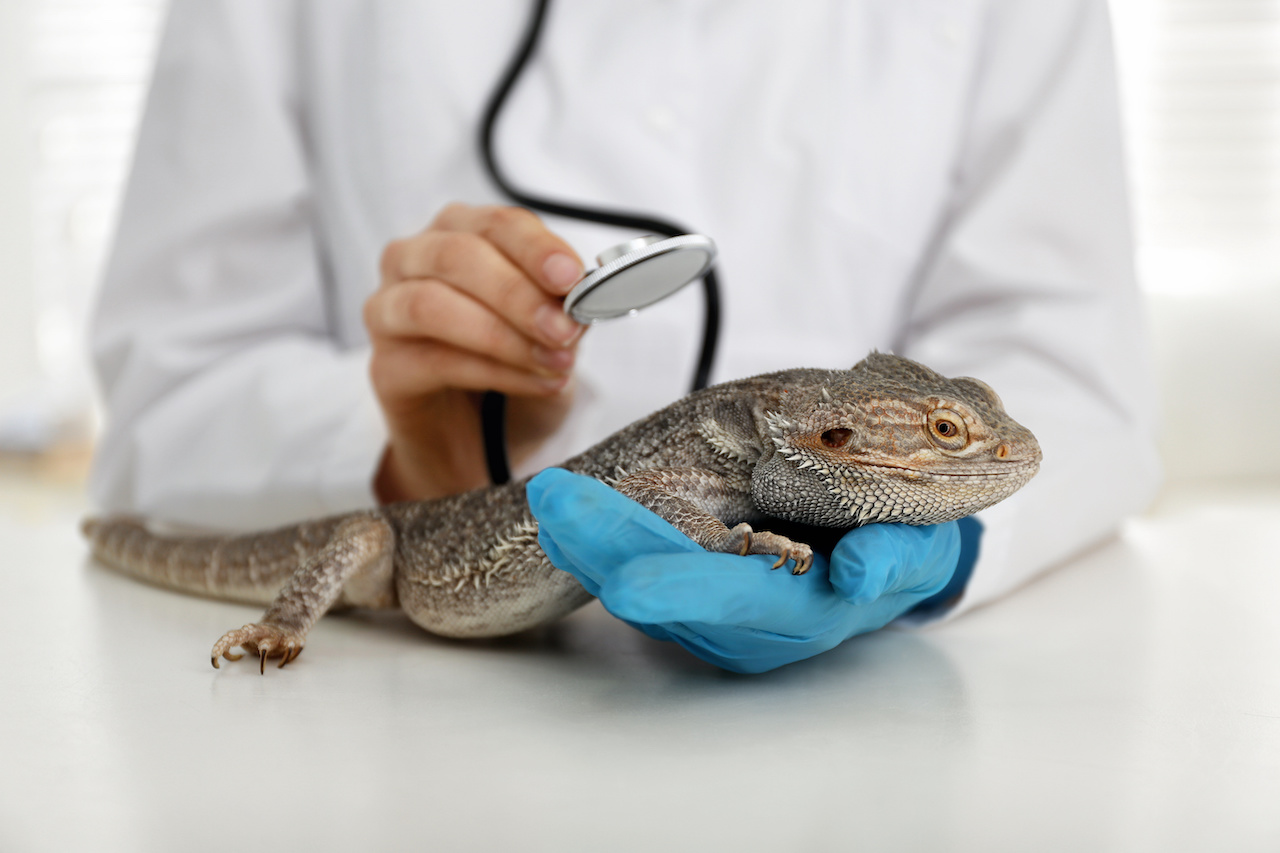Exotic Pet Care

Appointments are available on Monday, Tuesday, and Thursdays.
Just like cats and dogs, exotic pets require regular veterinary care. During their wellness visits, their veterinarian can address everything from nail care to nutrition, ensuring they stay happy and healthy year-round.
We’re thrilled to have Dr. Jessica Michalec on our team as she has over 19 years of experience in the veterinary medicine industry and has a passion for exotic animal medicine.
Exotic Pets We See
- Small Mammals including rodents, rabbits, and pocket pets
- Birds
- Reptiles
- Amphibians
What Does Exotic Pet Care Involve?
Within the broad category of exotic pets, many individual species have unique needs and requirements. Exotic pet care can involve:
- Nail Care: Some species, like ferrets and guinea pigs, have nails that continuously grow.\ Regularly trimming their nails ensures they can comfortably and easily walk around, grip a perch or feed. Keep in mind that long nails affect more than your pet’s mobility — they can also be painful.
- Dental Care: There are some animals, like guinea pigs and rabbits, that also have continually growing teeth. Depending on their species and needs, your exotic pet may benefit from cleanings or trims to keep their mouth healthy.
- Beak and Wing Care: Birds need special beak and wing care. If you have a bird as a pet, you’ll want to consider wing trims to prevent them from flying away. While wing trims are more of a cosmetic procedure, a beak trim offers several practical purposes. When a bird’s beak is the right length, it’s much easier for them to eat and groom themself.
- Nutrition: Each species has specific nutritional requirements to maintain a healthy weight and thrive. Your veterinarian can work with you to determine whether their current diet is adequate for their needs or if you should make any adjustments
- Blood Testing: With blood testing, a veterinarian will be able to take a more in-depth look at your exotic animal’s health. A simple blood test can alert them to nutritional imbalances or diseases.
- X-Rays: If you suspect your exotic pet may be injured, X-rays can provide your veterinarian with a closer look at the affected area. They’ll be able to make a more accurate diagnosis and develop a specific treatment plan based on what they discover
- Spay and Neuter: If you have a mixture of male and female exotic pets, you’ll want to be sure to spay and neuter them to prevent unwanted pregnancies. Also, desexing your exotic pets can prevent reproductive diseases.
- Husbandry: Did you know that many exotic pets present as a sick appointment because of inappropriate husbandry? Exotic husbandry is essential to the quality of life of any animal in captivity, especially an exotic companion species which typically require very specific care. Each of these species has very specific needs that typically reflect their natural environment, diet, and innate behaviors.
How Does Exotic Pet Care Work, and What Are Its Benefits?
Whether you have a rabbit, hamster, gerbil or some other exotic animal, regular checkups with a veterinarian are key to keeping them healthy — both now and in the future. It’s important to remember that most of these species are prey animals. This classification means that they are highly skilled in hiding pain, injuries or illness. Due to your pet’s instinctual drive, you may not notice something is wrong until the issue is severe.
This fact is why regular veterinarian visits are essential. During this time, your veterinarian will be able to look for subtle signs of illness and perform tests so they can treat conditions sooner rather than later. During their checkups, your veterinarian will examine your pet and review important aspects of their health, like their environment and nutrition. You’ll also be able to share any concerns you may have or ask questions to help you better care for your pet.
Common injuries and illnesses can occur due to an exotic animal’s environment, care or contagious disease. By scheduling regular physical examinations, you’ll be able to reduce the chances of your pet developing health concerns that could impact their quality of life.
Depending on their needs, treatment can involve anything from nail trims and blood testing to mass removals.
While yearly visits should be the standard, your veterinarian may recommend more frequent visits, depending on your pet’s health and age.
Schedule an Appointment for Your Exotic Pet
Ready to schedule a checkup for your exotic pet? Whether you need a veterinarian for your hamster, gerbil or rabbit, give Oyster Creek Animal Hospital a call at 281-201-8779 to schedule an appointment.
Explore Our Complete List of Veterinary Services in Sugar Land, Texas
- Osteoarthritis Care
- DNA Health Screenings
- Pet Health Certificates
- Orthopedic Evaluations
- Preventative Care for Dogs
- Diagnostics
- Preventative Care for Cats
- Boarding
- Online Pharmacy
- Senior Care
- Health Concerns
- Behavior
- Dermatology
- Parasite Prevention
- Nutrition
- Wellness Care for Cats
- Wellness Care for Dogs
- Pet Emergency Hospital in Sugar Land
- Spay & Neuter
- Vaccinations
- Wellness Exams
- Dental Care
- Surgery
- In-House Laboratory
- Senior Wellness
- Microchipping
